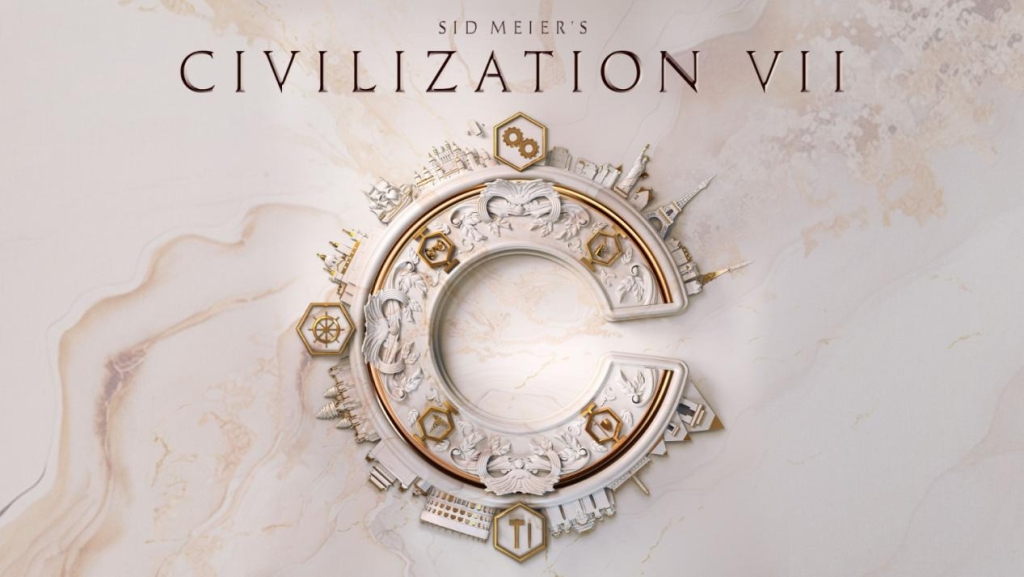From "Civilization 7" to "Three Kingdoms: Plan the World": Is SLG single-player or multi-player fun?
Feb 17 2025
In the game world, strategy games (SLG) have always been loved by strategy players as a classic game category. Whether it is the epic feeling of a stand-alone turn-based or the dynamic game of multiplayer online, SLG games can always attract players with complex decision-making and in-depth gameplay. Recently, the new work of the legendary classic stand-alone strategy game "Civilization" series "Civilization 7" was officially launched, with a national price starting from 298, which once again set off a wave of SLG gaming. There is also a lot of discussion on the Internet, whether SLG is stand-alone or multiplayer online. Fun?

The palace-level representative of stand-alone SLG: the gains and losses of "Civilization 7"
The Civilization series has become a benchmark in the field of strategy games since its first work was released in 1991. Its classic "Play One More Round" spell has influenced generations of SLG players. "Civilization 7" continues this tradition, but also opens a new chapter in controversy.
Compared with previous works, "Civilization 7" has made certain changes and innovations from UI to gameplay. The core charm of "Civilization 7" lies in its narrative framework of "reshaping the epic of civilization". Players can cross the three major eras of classical, exploration, and modern times, and freely choose leaders and state combinations (such as Confucius ruled the United States and Napoleon took charge of the Han Empire), and promote the evolution of civilization through scientific, cultural and military means. Each initial civilization has at least one. A “reasonable” evolution path. Although the new "dynamic narrative" system added to the game is criticized for its simple plot, it can enhance the player's sense of historical immersion at key nodes (such as the completion of wonders or the outbreak of war). In addition, the series' iconic music and art designs (such as the theme song "Live" Gloriously 》 lyrics in many ancient languages) still maintains a high level of audio-visual level, creating a heavy epic atmosphere for players.

Not to mention whether these changes have made "Civilization 7" better, at least the developers are still working hard to make the "Civilization" series more interesting. However, "Civilization 7" which has just been launched is indeed quite controversial. The price of the lower-priced domestic area is still about 30% higher than the previous work, and the price in Europe and the United States is even more expensive. In addition, due to frequent optimization problems in the early stage of the game (stuttering, crashing) and lack of information on interface design, Steam's evaluation once fell to "mostly bad reviews". However, players who have played "Civilization" know that Firaxis has always improved the game through DLC and patches, and "Civilization 7" will gradually be perfect.

Innovator of Online SLG: Innovative Game Design of "Three Kingdoms: Plan the World"
If "Civilization 7" is the new culmination of stand-alone SLG, then "Three Kingdoms: Plan the World" is a new model for online multiplayer SLG mobile games. Through "multi-professional collaboration" and "real battlefield simulation", the game redefined the interactive dimensions of online multiplayer SLG games.

"Three Kingdoms: Plan to Determine the World" breaks the "monarch's perspective" of traditional SLG mobile games and introduces six major professional systems: Qizo (strategic control field), Zhenjun (front line output), Shenxing (guerrilla raid), Qing Dynasty Cannabis (treatment assistance), Sicang (resource operation), Tiangong (device construction). Each profession has unique skills, such as Qingnang can reduce combat losses and provide gains, Tiangong can build arrow towers and throw stone cars to conquer cities and land, Sicang can farm and explode troops to support the front line, Shenxing goes deep behind enemy lines to burn granaries, etc. This design requires players to divide the work and cooperate in the alliance, and achieve tactical innovation through professional combinations (such as "Shenxing + Qingnang" using war to support war), rather than simply competing with whose generals are stronger. After all, traditional SLGs are trying to draw generals to the generals. It's really too kryptony.

Although the game emphasizes social collaboration, unlike the traditional SLG of "explosion" in the eyes of players, the game has carried out a series of innovative gameplay designs for reducing burdens, through automatic paving, general replacement, and training stations Functions such as automatic upgrade, one-click siege reservations and military hosting have reduced the player's game time investment requirements and met the needs of players from mild to severe.

The streamlined design of "Three Kingdoms: Deciding the World" has greatly reduced the gaming pressure on players, but it does not affect its in-depth real-time strategy gaming experience at all. The game has introduced an innovative mechanism, and the special baggage system allows players to use the terrain to set up ambush, intercept grain or burn granaries to disrupt the enemy's rear; the blizzard brought by extreme cold weather will dynamically change the world scene, such as the freezing of the cold river, providing players with the The new tactical advantage of marching on the ice has also increased the difficulty of capturing some key areas. In addition, the core general training systems of the game are rich and diverse. Combining elements such as tactics, mounts, equipment, hexagrams and other elements with the talent skills of hundreds of generals can create hundreds of different tactic systems, which is extremely important. Improves the strategy and playability of the game.

SLG stand-alone vs. multiplayer online: two expressions, choose from suitability
Now we return to our original topic, is SLG stand-alone or multi-player fun? In fact, single-player and multi-player SLG are not opposites, but two expressions of strategic fun. "Civilization 7" emphasizes long-term planning and personal decision-making. Players can pause thinking and read the files repeatedly, immerse themselves in the macro narrative of the long river of history, and control the evolution of a civilization; "Three Kingdoms: Plan the World" emphasizes online interaction between multiple people and the situation of war As it changes rapidly, it is necessary to quickly respond to allies' needs and enemy movements. Competition and cooperation between players form the core of the game. The common point between the two is the ultimate pursuit of decision-making strategy - whether it is the choice of technology in a single machine or the dispatch of food and supplies on a multi-player battlefield, it is enough to change the overall situation.
For players, there is no need to worry about which one is better or worse. If you are eager to create a grand new chapter in history, "Civilization 7" is an irreplaceable classic; if you pursue a passionate team game, "Three Kingdoms: Plan the World" is also worth trying. Perhaps, true strategy enthusiasts have already been at ease among the two camps - after all, who can refuse the temptation of "playing for another round"?





